Due to scheduled maintenance, the National Library’s online services will be unavailable between 8pm on Saturday 7 December and 11am on Sunday 8 December (AEDT). Find out more.
As Spring sets in and lockdown restrictions in some cities ease, picnics have become an increasingly popular way to spend time with loved ones and to reconnect. Delving into the Library’s oral history collection, it’s clear that the simple pleasures of a picnic have brought joy to generations of Australians.
From taking the family on a beachside or mountainside picnic to falling in love on a picnic rug down by the river, the Library’s oral history collection shows that picnics have been an enduring feature in Australian lives.
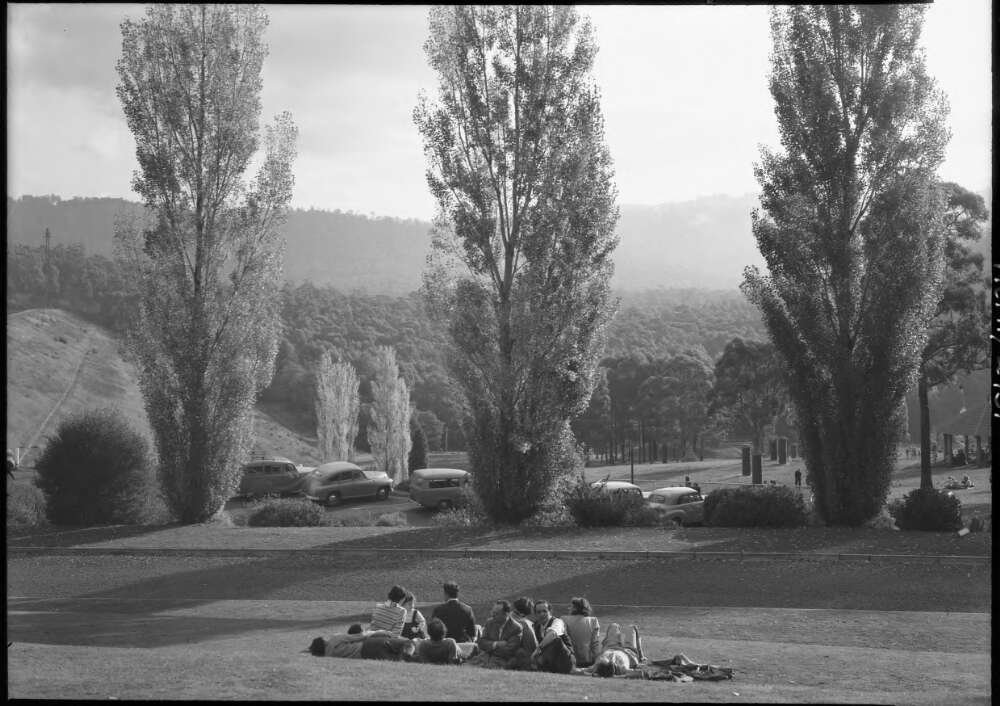
Some of the happiest childhood memories in the oral history collection involve picnics. Ronnie Gauci migrated to Australia from Malta with his family when he was a child. Growing up in Sydney in the 1950s and 1960s, his family were not wealthy. Picnics were a regular feature of his life growing up and he ‘loved it’. He remembers his father loading his first car, an Erskine, up with Ronnie and his siblings and, then later, when he had a bigger car, picking up cousins as well.
Ronnie remembers:
‘Every weekend dad would take us somewhere.’
Picnics were enjoyed at La Perouse, the National Park at Wattamolla and the Botanic Gardens down by Sydney Harbour, before the Opera House was built. Ronnie describes an idyllic scene. ‘We used to enjoy it. Just, just walking around…he'd have the picnic. He'd put a blanket out, under a tree and walk along the foreshore. Watch the boats.’ Unsurprisingly, while enjoying such times, ‘It didn’t ever enter our minds that we were poor. Just never.’
Listen to the Ronnie Gauci interview
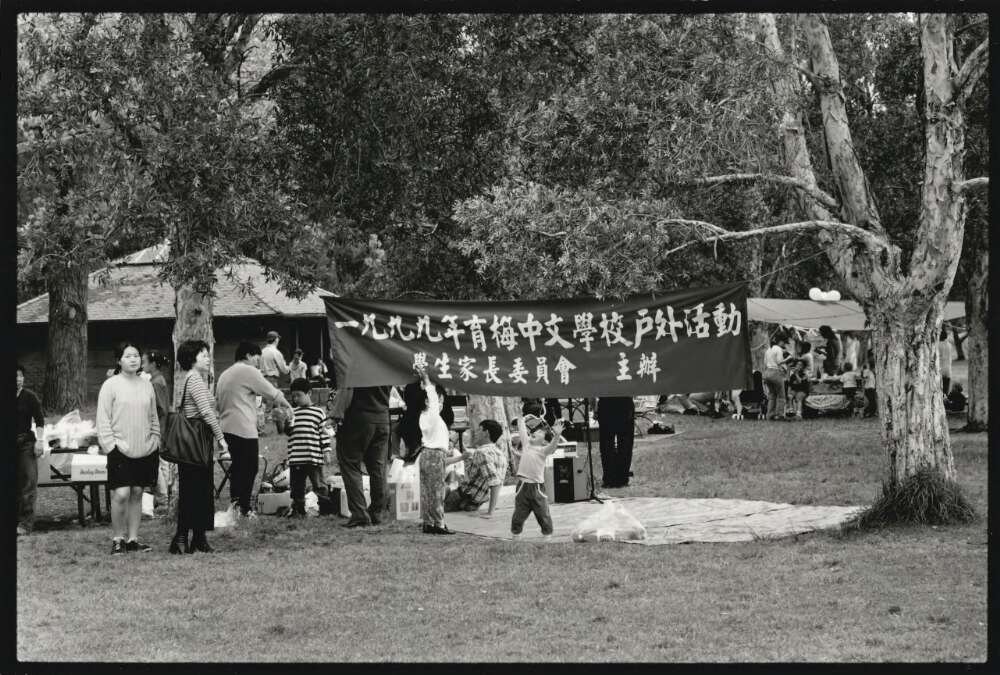
Hilda Ferguson, born in 1890, remembers clearly the food and drink she used to enjoy as a child at Silverton picnics. At the larger elaborate picnic events which occurred a few times a year, she would usually be able to buy ‘what she wanted’ as food stalls were set up.
‘You could get a pasty for threepence…and we’d buy a glass of raspberry, that would be a penny.’
When Hilda attended Sunday School picnics, the food and drink was provided to the children for no cost. At these picnics, Hilda would ‘mostly have a pasty and then a bun and a glass of raspberry.’
Listen to the Hilda Ferguson interview
Queenie Symonds, who was Jewish and born in 1896, enjoyed going to picnics in Sydney on a Sunday in the 1910s. She recalls,
‘We would go down somewhere and find a quiet spot. My mother would make sandwiches…you couldn’t go to a shop and buy things. There was no such thing as ice-cream and we never thought of going out to buy things.’
Listen to the Queenie Symonds interview
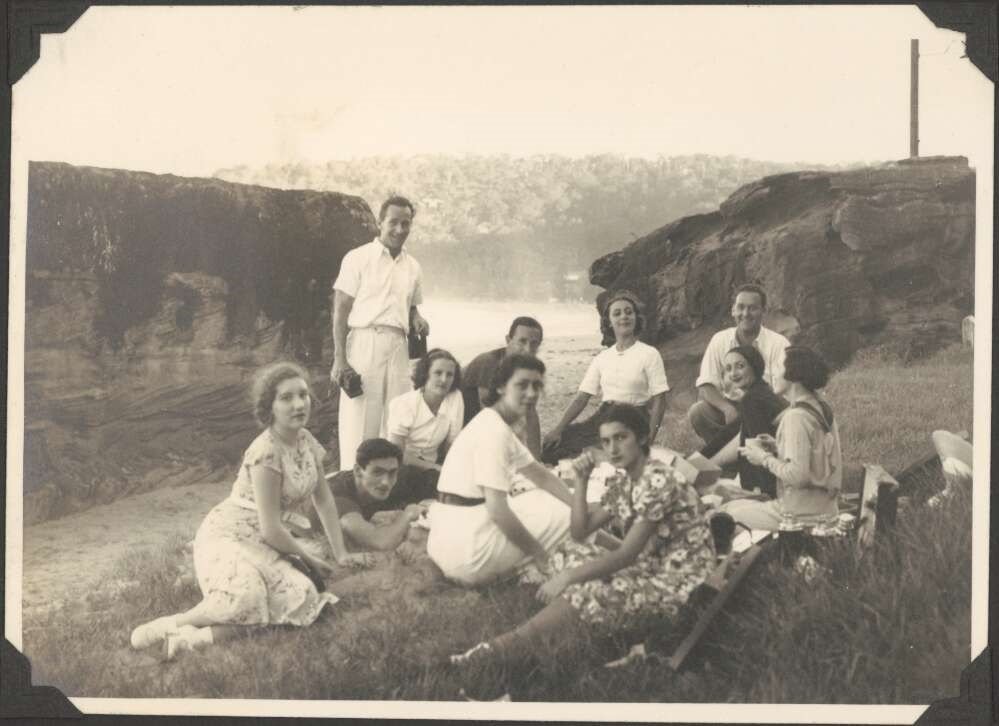
Many a relationship started at a picnic.
Beatrice Gerdes, born in 1902, remembers that when she grew up in the inner west of Sydney, picnics provided an opportunity for boys and girls to mix freely together. She describes how:
‘We went out on our picnics - boys and girls all together - and we didn’t have chaperones with us.’
Listen to the Beatrice Gerdes interview
In the 1920s, when Evelyn Prowse was twelve and the boy who would become her husband was fifteen, the two got to know each other better through picnics. She remembers as part of the courting process she would spend time with his family.
‘We used to have quite a lot of picnics and we used to go for picnics out into the country on a horse-drawn lorry, which was a lot of fun.’
Listen to the Evelyn Prowse interview
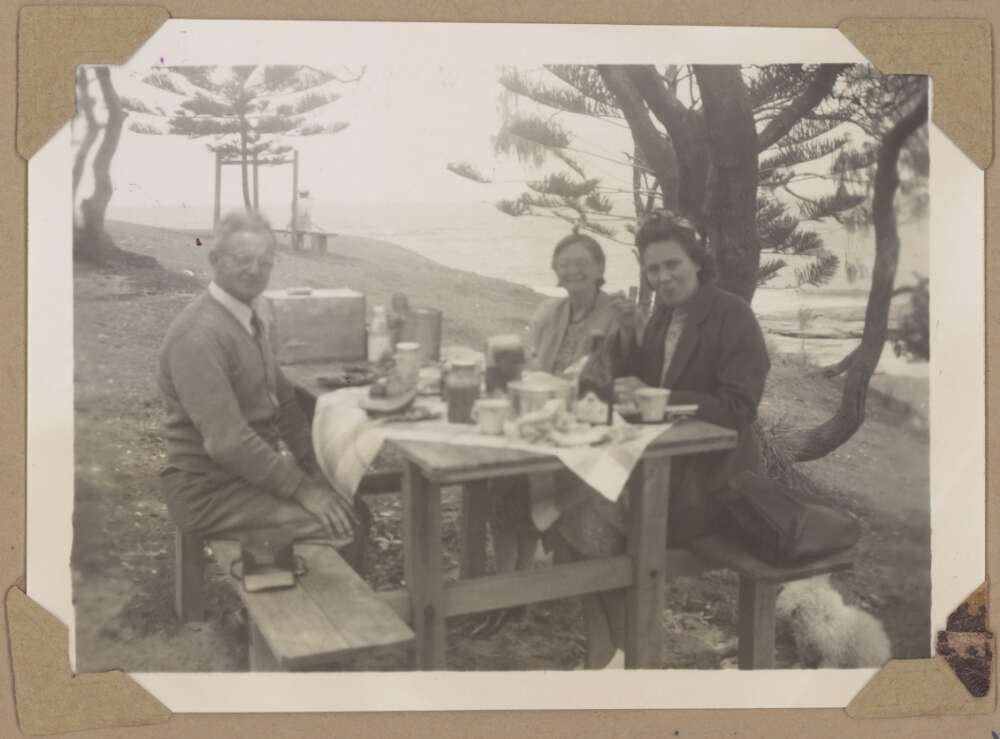
Similarly, Robert Campbell remembers connections being made at Easter picnics down at the Cotter River after World War II, when he was a young teenager. He would spend time with Helen, the girl who would later become his wife. He describes how:
‘We would go down to the Cotter [River] and have a big picnic with all the people down there and we’d have fun down there’.
On a trip to Sydney, Robert went out for a picnic with the family he was staying with and two other boys ‘and that’s when I first got fond of Helen.’ In the 1950s, picnics down at the Kambah Pool continued to be an important part of the married social life he enjoyed with Helen.
Listen to the Robert Campbell interview
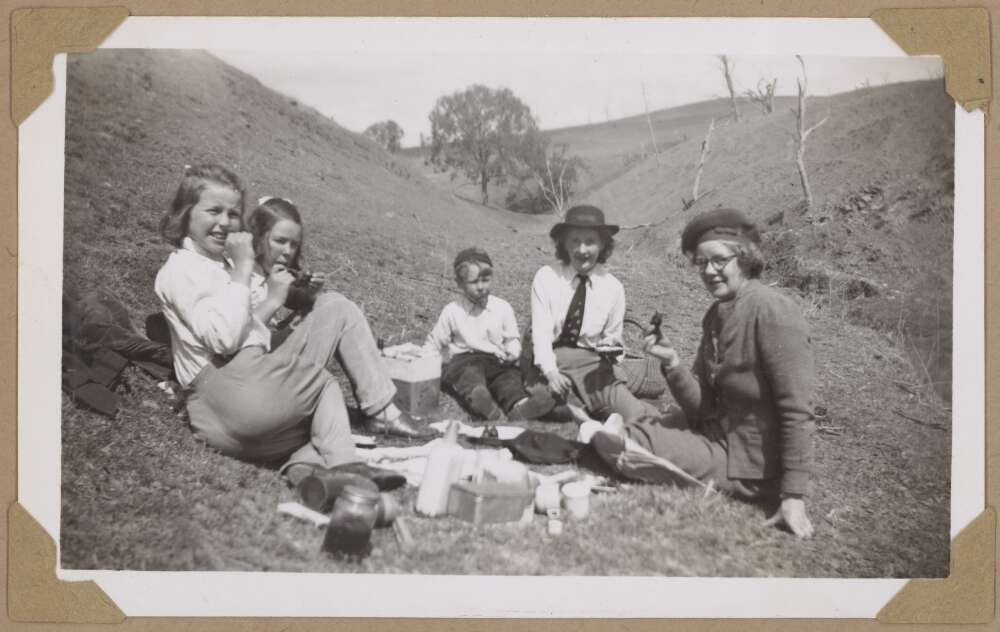
Charles Price and his family were based in Canberra in the 1950s and he remembers picnics being a big part of family life. He recalls,
‘We took the kids for picnics most Sundays just out into the hills or the pine forests. We used to go off to the Stromlo Pine Forests and have picnics down on the river there and up on the pine trees or we’d go out down to Uriarra or up beyond into Mount McDonald and the mountains beyond that and we loved all that and the kids enjoyed it I think and we’d always take their friends out with us when we went and we liked that kind of healthy outdoor life for the children on weekends anyway.’
Listen to the Charles Price interview
While picnics are overwhelmingly remembered positively, there are some memories that are less pleasant. Fred Purcell, born in 1897, remembers an incident on New Year’s Day in 1915, which is widely regarded as Australia’s first case of domestic terrorism. The train carrying picnic goers from Broken Hill to Silverton was shot at, a fifteen-year-old Alma Cowie was sadly killed and the picnic that year was cancelled. The picnics at Silverton did continue in future years and were a meaningful part of Fred Purcell’s life, as well as for the communities of Silverton and Broken Hill.
Listen to the Fred Purcell interview
COVID-19 might have seen a resurgence in picnics but it’s clear they hold a deep and enduring meaning for many Australians. The opportunity to gather together with food, friends and family and to spend time outdoors has offered great joy to many of all ages and backgrounds.